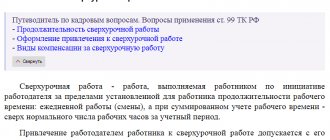The employer has certain obligations to the employee, which are enshrined in the Labor Code. Let's look at the articles of the labor code on the payment of wages. The word “advance” is not used in the code of the Russian Federation; it is customary to call such a payment as wages for the first half of the month. We made this conclusion after considering articles 129 and 136 of the Labor Code of the Russian Federation.
Also, the articles of the code describe the timing of payment of an employee’s income: every half month the employee must be paid a portion of his earnings. In the labor and collective agreement, it is necessary to make a record of more precise dates for the provision of these payments to the employee. For example, on the 25th, an employee will receive part of the money earned for the first half of the month, and on the 10th of the next month, the employer must pay accrued amounts based on the results of work for the month.
For different structural units, you can set different paydays. This will allow the organization to plan its financial flows more freely. For example, administrative personnel should be paid income on the 28th and 13th, and operating personnel on the 25th and 10th.
But it is necessary to pay wages for the first half of the month before the 30th (31st) day (Article 136 of the Labor Code of the Russian Federation, letter of the Ministry of Labor dated 02.14.2017 No. 14-1/OOG-1293, letter of Rostrud dated 09.26.2016 No. TZ/5802-6-1).
If the payment date falls on a holiday or weekend, it is advisable to take advantage of the recommendations of the labor inspectorate and pay half of your earnings earlier. True, in such a situation, the next period between payments may exceed 15 days, but this will not be considered a violation. For example, payment deadlines are set on the 26th and 11th. October 11 will be a day off, therefore, wages for September must be paid to employees on Friday, i.e. October 9. And the next payment will be according to schedule, i.e. 26th, but only after 17 days. Such a deviation from the frequency of payments is not considered a violation of the Labor Code, because the employer fulfilled its obligations to the employee in compliance with all legal requirements.
Advance amount
But how can we determine the amount of payment for that part of the income that needs to be transferred to the employee for half the month? When determining the amount, you need to remember that the payment should include not only part of the employee’s salary (tariff), but also his permanent bonuses, the calculation of which does not depend on the results of work for the month or on the fulfillment of the monthly quota.
When calculating the advance, you should include part of the permanent remuneration for work performed and allowances in the form of compensation. For example, an employee works in shifts and his earnings include additional payments for night work (Article 154 of the Labor Code), and there may also be allowances for combining professions or length of service.
Allowances, which depend on the results of work for the month, are accrued to the employee when the payment for the entire month is formed. These include incentive payments (bonuses), which are accrued based on the results of completing work for the month, additional payments for overtime work, for work on weekends and non-working holidays (Articles 152, 153 of the Labor Code of the Russian Federation), regional coefficients, northern allowances, etc. d. The listed payments are not taken into account when calculating earnings for the first half of the month.
Article 136 of the Labor Code of the Russian Federation. Procedure, place and terms of payment of wages (current version)
1. The provisions of the article are formulated in relation to the rules provided for by ILO Convention No. 95 “Concerning the Protection of Wages” (1949).
2. When calculating and paying wages, each employee must be given a pay slip containing information about the amount and components of wages, as well as about deductions made. The list of information established by Part 1 of the commented article is required for inclusion in the pay slip.
The form of the payslip is not specified by the Code; it is approved by the employer, taking into account the opinion of the representative body of employees. Thus, it is given the force of a local regulatory act, which serves as an additional guarantee of workers’ rights.
The pay slip must be issued at least once a month when the final payment is made based on the results of the month’s work.
The value of the payslip is very large. Judicial practice is based on the fact that only if the employer issues a pay slip for wages, it is permissible to assume that the employee should have known about the violation of his rights in connection with incomplete payment. When considering a specific case, the court found that the form of pay slips for calculating wages was not approved by the employer, and pay slips were not issued to employees. Thus, the employer did not fulfill the obligation to issue wage slips. Therefore, the court had no reason to assert that the employee could and should have learned about the components of his salary every month when receiving wages. During the consideration of the case, it was established that the plaintiff became aware of the violation of his right to full payment only in September 2012 (in connection with the consideration of claims of other workers, when it was reliably established that the workers’ wages were calculated by the defendant without taking into account the Ural coefficient). As a result, the reasons for the employee missing the deadline to go to court were recognized as valid (Determination of the Sverdlovsk Regional Court dated February 22, 2013 in case No. 33-1620/2013).
3. Wages must be paid at the place where the work is performed. This rule was established in order to create the most convenient conditions for the employee: he should not waste his free time and travel in order to receive wages at the central office of the organization, centralized accounting, etc.
The place where work is performed (including a specific workplace remote from the location of the organization) is determined by the internal labor regulations, other local regulations or an employment contract.
4. A collective agreement or employment contract with a specific employee may provide for the transfer of wages to a bank account specified by the employee. A corresponding change can be made to the employment contract after its conclusion.
The terms of the transfer (terms, procedure, amounts) are determined in the collective agreement or in the employment contract. The costs of transferring funds and servicing a bank card (if an appropriate account is opened) are borne by the employer.
5. When paying part of the salary in non-monetary form, the place, terms and procedure for issuing the relevant goods (products) are established in a collective or labor agreement. In this case, the most favorable conditions for the employee must be provided, for example, bulky or heavy goods must be delivered to the employee’s home or he or she must be given the opportunity to remove them step by step.
For payment of wages in non-monetary form, see also the commentary. to Art. 131.
6. Salaries are paid directly to the employee. Exceptions to this rule may be established by federal law or employment contract. Federal laws currently do not establish such exceptions. In an employment contract, the parties are free to establish any method of payment of wages, for example: transferring it to the account of the employee’s spouse (one of the parents, children, etc.); issuance of wages in cash under a power of attorney issued by the employee.
In case of limitation of the employee’s legal capacity in the manner provided for in Art. 30 of the Civil Code of the Russian Federation, his salary is issued to the trustee on the basis of a trustee certificate or to the employee himself, but on the basis of the written consent of the trustee.
7. Salaries must be paid at least every half month. Specific days for the payment of wages are established by a collective agreement, or internal labor regulations, or an employment contract.
In practice, two or three days for the payment of wages are usually set, for example, 1 - 3rd and 15 - 17th of each month. Most organizations use an advance payroll system, in which an advance payment is paid in the middle of the month, which is usually part of the tariff rate (official salary) and compensatory additional payments of a permanent nature (for harmful working conditions, etc.), and at the beginning of the next month final payment including incentive payments.
Salaries are issued on the basis of statements. Resolution of the State Statistics Committee of Russia dated 01/05/2004 N 1 approved unified forms of primary accounting documentation for recording labor and its payment, including the forms of payroll, payroll, payroll, payroll register (from 01/01/2013 are not mandatory).
8. The establishment of other terms for payment of wages is possible only in federal law. An agreement to pay wages once a month, regardless of the level at which it is concluded, is contrary to legal requirements.
9. The commented article provides for special rules for the payment of wages in cases where the day of its issuance coincides with a weekend or non-working holiday. In these cases, wages must be paid the day before - on the last day of work or in advance.
Vacation is also paid in advance. In case of violation of the deadline for payment of vacation, it can be postponed (see commentary to Article 124).
10. Parts 3 and 5 of the commented article were the subject of challenge in the Constitutional Court of the Russian Federation, which in the Determination of April 21, 2005 N 143-O indicated that these norms represent guarantees for the implementation of the enshrined Labor Code (Articles 2, 21, 22 and 56 ) the employee’s rights to timely and full payment of wages; are aimed at ensuring coordination of the interests of the parties to the employment contract when determining the rules for payment of wages, at creating conditions for the unhindered receipt of wages personally by the employee in a manner convenient for him and comply with the provisions of ILO Convention No. 95 (1949).
Comment source:
Rep. ed. Yu.P. Orlovsky “COMMENTARY ON THE LABOR CODE OF THE RUSSIAN FEDERATION”, 6th edition ACTUALIZATION
ORLOVSKY Y.P., CHIKANOVA L.A., NURTDINOVA A.F., KORSHUNOVA T.YU., SEREGINA L.V., GAVRILINA A.K., BOCHARNIKOVA M.A., VINOGRADOVA Z.D., 2014
What is the best way to pay an employee - a fixed amount or a percentage of earnings?
The Labor Code does not prohibit the payment of wages for half a month based on a percentage of the salary (rate). For the employer, this method is even considered more convenient, because the accountant will not waste time calculating the amount and entering data on the time worked, and the employee himself expects a certain amount, which he receives regularly when transferring income for the first half of the month.
The accountant calculates a certain percentage, most often no more than 40-45% of the approximate monthly earnings. With this distribution of income, payments for the first and second half of the month are almost equal.
But, as practice shows, this method of payment will be incorrect, because an employee can provide sick leave or ask for time off, go on vacation, i.e. do not work fully half the month. Accordingly, the amount of income for half the month will be calculated incorrectly and will exceed the employee’s earned income. There may also not be enough accruals to withhold personal income tax.
There are cases when, at an enterprise with approximately the same level of remuneration, an accountant considers the option of using advance payments in a fixed amount. But if we talk about a fixed payment of income for half a month, then it is better not to use such accruals in practice, because inspection inspectors (controllers) regard it as a violation of employee rights and discrimination in the labor sphere (letter of the Ministry of Labor dated 08/10/2017 No. 14-1/B-725, letter of the Ministry of Finance dated 03/29/2016 No. 02-07-05/17670).
What amount should I pay to an employee who has just been hired?
Tax inspectors believe that an employee who has just been hired and worked only one day in the billing period already has the right to receive income for the first half of the month (Article 136 of the Labor Code of the Russian Federation). You just need to calculate his income in proportion to the time worked. And if you don’t pay, the employer can be punished and held accountable under Part 6 of Art. 5.27 Code of Administrative Offenses of the Russian Federation.
For example, the deadline for paying wages for the first half is the 30th (31st), payment of wages is on the 15th. Markov A. M. was hired on the 14th, for a position with a salary of 44,000 rubles. According to the production calendar, there are 22 working days in October. When determining the amount of income for the first half of the month, we will apply the conditions in proportion to the time worked for half the month. By the time of payment, two days have been worked, which means the payment amount will be 4,000 rubles. The employee will receive this amount on the 31st.
Since the situation with the hired employee is considered controversial, when determining the amount of earnings for the first half of the month, it is better to use a calculation proportional to the time worked.
Advance regulations
In labor legislation there is no such thing as an advance on wages. Article 136 of the Labor Code of the Russian Federation states that the employer is obliged to pay wages at least every half month. Moreover, this must be done no later than 15 calendar days from the end of the period for which this salary was accrued. An advance is called the first part of the salary, that is, the amount that the employee receives for the first half of the month.
What are the rules for calculating advance payments? The problem is that there are no clear regulations. Until recently, Resolution No. 556, issued in the middle of the last century by the Council of Ministers of the USSR, was in force. It established the following condition: the advance payment cannot be lower than the payment for the time actually worked. But at the beginning of October 2021, this resolution was canceled, which did not add clarity to the calculation of the advance. Now each employer decides these issues for himself. Let's consider what opinions exist.








